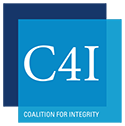World Bank Policies

We believe that because of the World Bank’s position as a leading donor organization, its policy decisions will have a significant influence on the policies of other donor organizations around the world. By working with the World Bank to improve its governance and anti-corruption strategies, both internally and in the countries in which it works, we can effectively help shape the governance and anti-corruption policies of donor organizations and countries around the world.
Under the leadership of former president and current Transparency International (TI-USA) Advisory Council member James Wolfensohn, the World Bank began to recognize that corruption in international development assistance, generally and in its own projects in particular, was a serious problem.
As a result of this recognition, the World Bank decided to develop a governance and anti-corruption strategy. In order to develop and evaluate this strategy, the World Bank sought the advice of civil society organizations. TI-USA was actively involved in this consultation process. Together with Transparency International, we submitted detailed recommendations for how to improve and implement the strategy, both internally at the World Bank itself and externally in the countries in which the World Bank is active.
TI-USA has also been actively involved with the World Bank on numerous other policy questions. Building on our procurement experience, we have provided the World Bank with recommendations on how to improve the policies and procedures it uses during procurements on World Bank–financed projects. We have also urged the World Bank to improve the regime it uses to investigate and sanction companies and individuals who have engaged in fraud or corruption while working on World Bank-financed projects. Lastly, we provided the Bank with recommendations on how to ensure for greater public participation in project design and implementation.
Our advocacy has resulted in important improvements to Bank policies. In the Bank’s new procurement framework, scheduled to take effect in 2016, the Bank responded to our concerns and pledged to explore how to collect and publish the identity of the beneficial owners of companies that bid on Bank-financed procurements. The Bank also committed to using third party monitors, including civil society organizations, on high risk procurements. We continue to work with the Bank to help ensure that these new policies are fully implemented.

